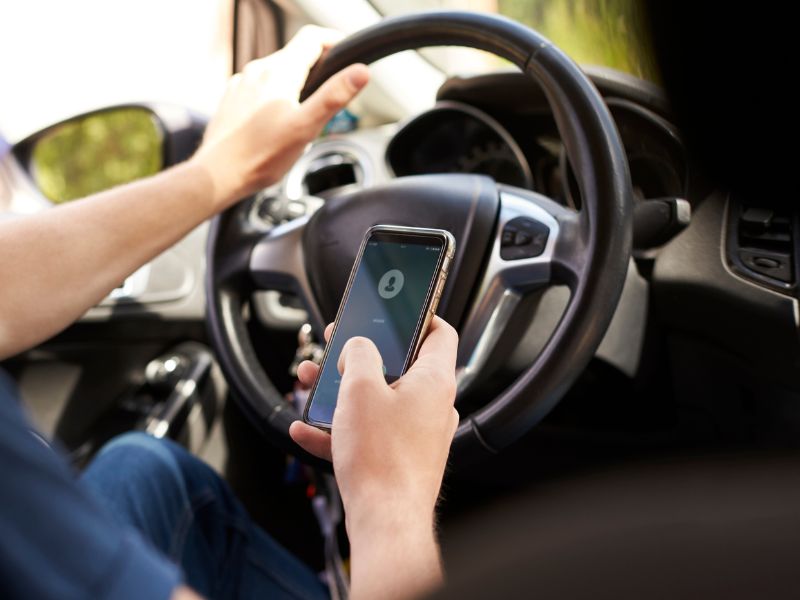The plan to use automatic cameras to curb the use of mobile phones behind the wheel has been scrapped. Traffic safety institute Vias regrets the decision, arguing that urgent steps are needed to tackle this behaviour.
An agreement was signed two years ago as part of the new Federal Road Safety Plan to use smart cameras to catch drivers in the act when they are looking at their phones with the aim of putting an end to the alarming increase in the number of people doing so.
The system, based on Artificial Intelligence, would see the ANPR speed camera network, which is already installed along the country's roads, take photos of drivers through their windscreens and vehicles' license plates if it was suspected that the driver was holding a telephone. These images would then be sent to the police for further investigation.
Five police zones were supposed to start using the high-tech cameras this year, but the plan has now been scrapped due to political disagreement over privacy issues, Het Nieuwsblad reported on Wednesday.
MPs of the Liberal Open VLD party in particular argued that the "razor-sharp photos" are an invasion of drivers' privacy. There is also reportedly opposition coming from the top of the Federal Police.
'No solution for major killer'
Traffic safety institute Vias regrets that the plan will not be rolled out, as the use of mobile phones is such a big problem for road safety. Distracted driving due to mobile phone use is the cause of 8% of fatal accidents, resulting in an estimated 50 deaths and 4,500 injuries per year.
"However, it is difficult to put a real figure on this, because it is not always clear whether drivers were looking at their phone when the accidents occur," the organisation's spokesperson Stef Willems told The Brussels Times, adding that this is why systematic checks are needed. "The decision is really a pity because this system would greatly increase the chances of being caught."
He agreed that privacy had to be taken into account, but that sufficient privacy safeguards were put in place in agreement with the Data Protection Authority during the pilot project in 2020.
Related News
- Avenue de Tervueren redevelopment: Ambitious proposals meet local criticism
- 'Not doing enough': 30% of Brussels residents do not feel safe on roads
Willems added that similar cameras are already being deployed in the Netherlands. As a result, police managed to catch 35% more drivers in the act in the last two years.
He added that there are no real alternatives that can tackle the issue in the same way. "Police only have the manpower they have now. They may catch some people, but only when they pass the drivers. If you carry out checks at a fixed point, then you know people are going to get caught and they can be fined," he concluded.

